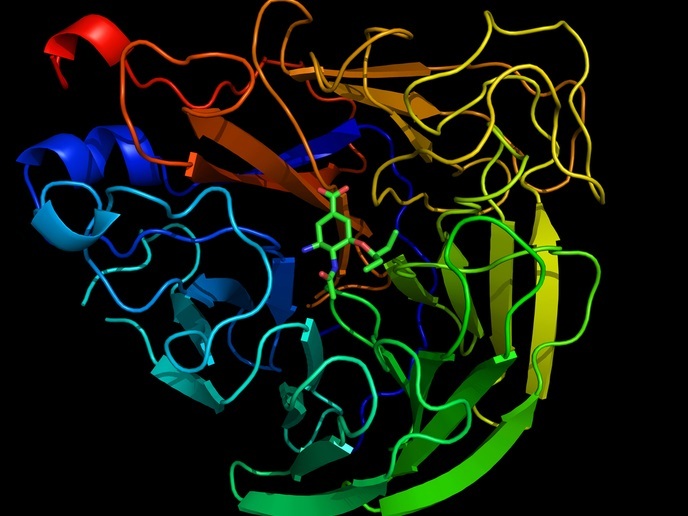Advancing chemical synthesis in fragment-based drug discovery
Fragment-based drug discovery entails the screening of libraries of low molecular-weight compounds or fragments against the target of interest. The identified ‘hits’ usually exhibit weak affinity, so subsequent steps of optimisation and expansion are necessary to generate molecules with higher affinity for the particular target.
Novel chemical reactions to expand small molecules into real drugs
The SYNFOS research project was undertaken with the support of the Marie Skłodowska-Curie (MSC) programme, to improve the chemical reaction toolkit scientists employ in fragment-based drug discovery. “A major challenge is that it is generally not possible to expand fragment hits directly into larger molecules,” explains Adam Nelson, the host of the SYNFOS project. The standard toolkit of reactions is suitable for adding groups onto nitrogen and oxygen atoms, but these often interact directly with the protein of interest, so they must be left unmodified. As a result, scientists build ‘grown’ molecules through de novo synthesis, although it would be preferable to add new groups directly to the ‘hit’ fragment to obtain drug-sized molecules. To address this limitation, MSC fellow Alexandre Trindade developed several new transformation reactions that allow the direct growth of cyclic fragments. These reactions activate non-reactive saturated carbon-hydrogen bonds and incorporate small groups with bioactive or medicinally related functionalities. Exploitation of this methodology on new fragment hits for Aurora-A kinase has produced promising results, with molecules demonstrating improved binding to the target protein.
Prospects for the SYNFOS synthetic toolkit
“There are so many possible small molecules; even if it were feasible to synthesise them all, there is not enough material on Earth to make just one copy of each possible drug-sized molecule,” outlines Nelson. Fragment-based drug discovery is a solution to this problem, giving drug discovery scientists the opportunity to start with fragments approximately half the size of traditional drugs. However, the current reaction toolkit for medicinal chemistry is rather narrow, so useful new methods have significant value. SYNFOS has successfully developed methodology for adding novel functionality directly into fragment hits. This allows the exploration of new regions of chemical space to enable the identification and evaluation of molecules that could not otherwise be found. This has the potential to translate into drug candidates that are more likely to reach the market. According to Nelson, the next step is to demonstrate that the SYNFOS synthetic methods can be automated, a much-needed feature in molecular discovery. It will enable researchers in drug discovery organisations to use this toolkit in many fragment-based discovery projects in a high-throughput manner. To achieve this, Nelson’s group is collaborating with interdisciplinary teams of structural biologists and medicinal chemists. Dissemination activities are fundamental for demonstrating the power of the SYNFOS synthetic methods. “To realise the long-term impact of the project deliverables, they must be implemented in the discovery of new drugs that address specific unmet medical needs,” he concludes.
Keywords
SYNFOS, drug discovery, Fragment-based drug discovery, small molecules, reaction toolkit, organic synthesis







